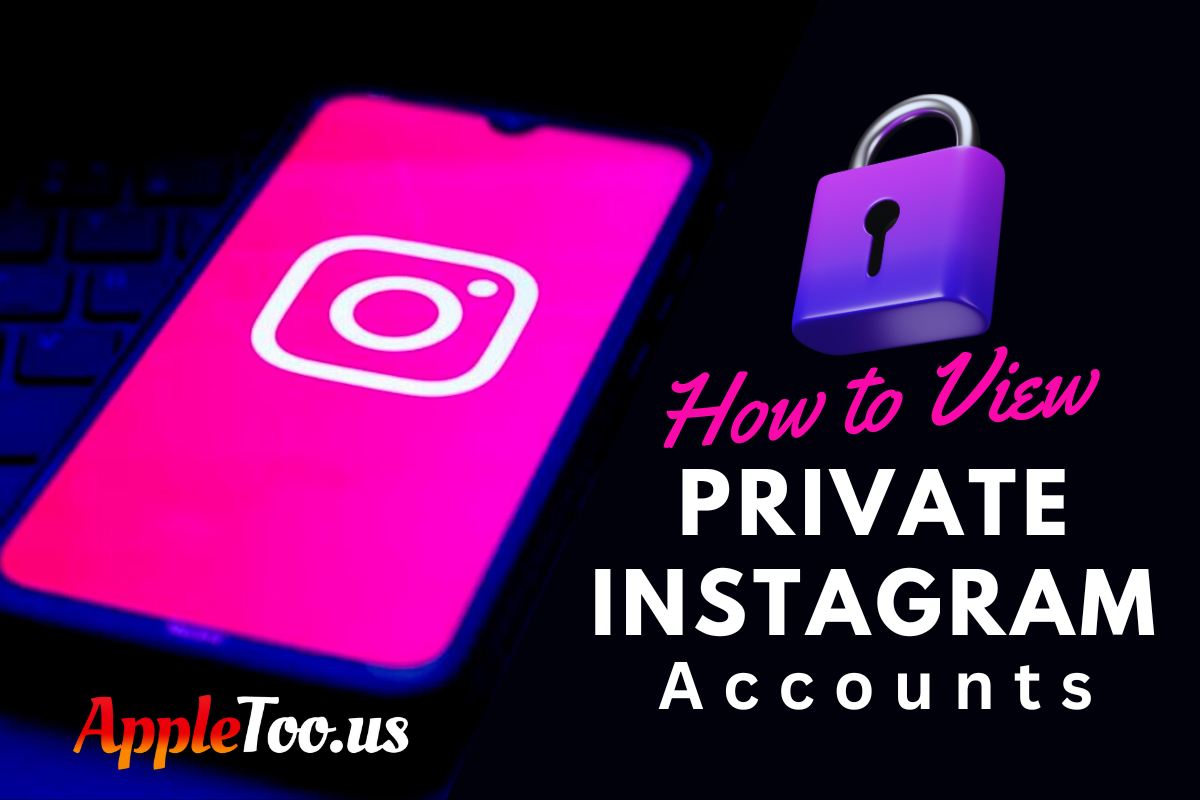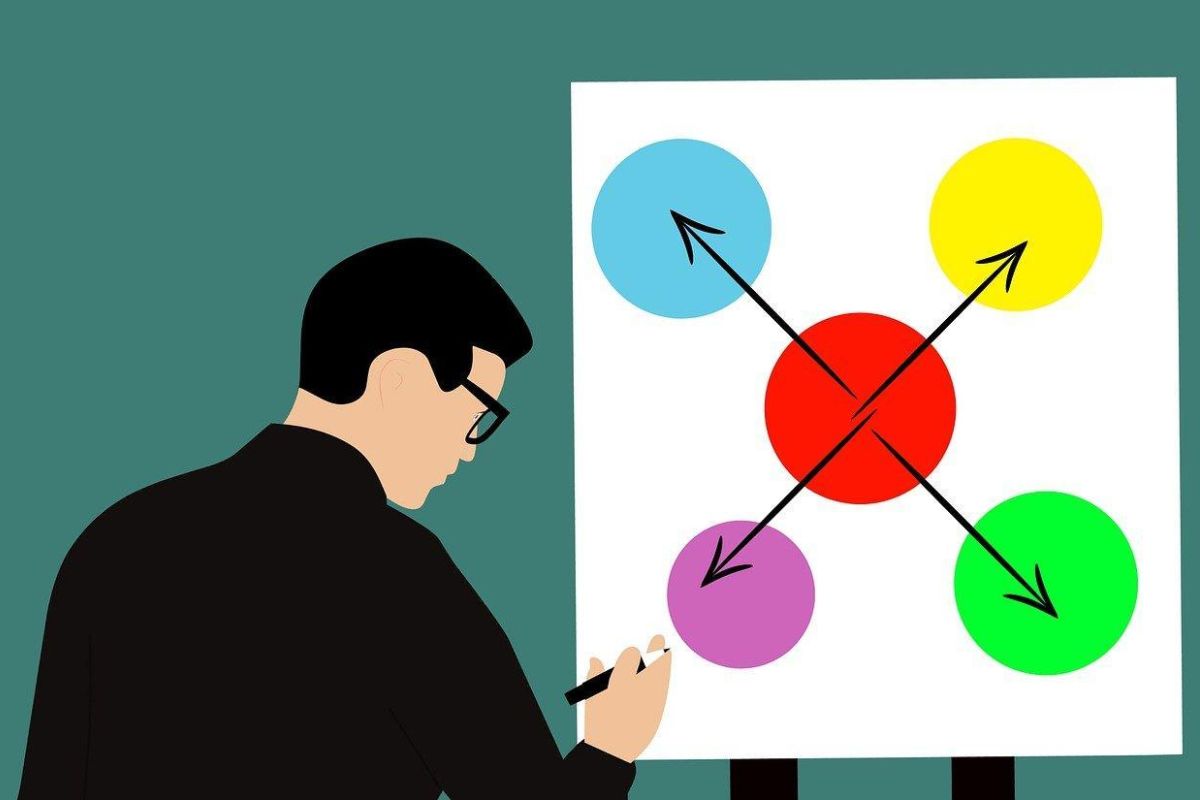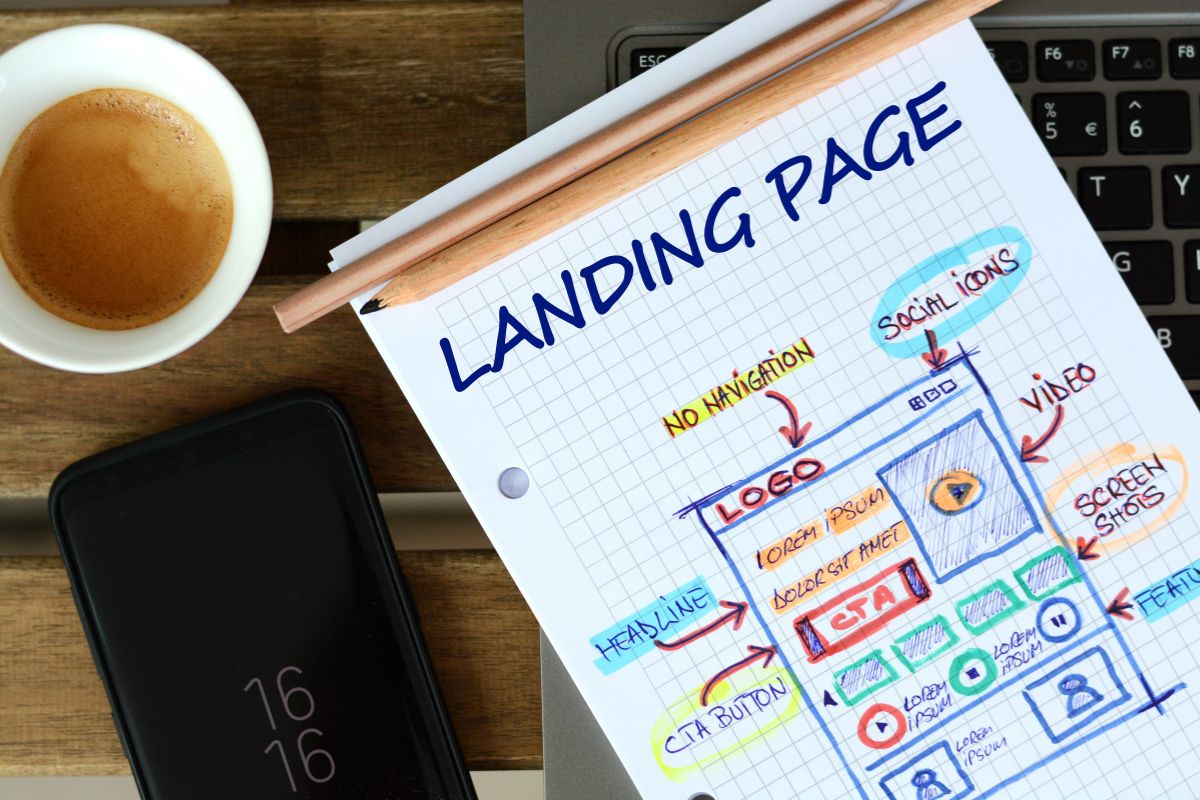Navigating the complexities of mental health can be a challenging journey, but the advent of technology brings a beacon of hope with the best apps for mental health.
These digital allies offer a range of tools and resources, making support and self-care more accessible than ever.
From mood tracking to meditation, and cognitive behavioral therapy to stress relief, each app is designed with the user’s mental well-being in mind, providing a personalized approach to managing mental health.
Table of Contents
ToggleBest Apps for Mental Health
Whether you’re looking for a moment of calm, strategies to tackle anxiety, or a way to track your mood over time, these apps are geared towards empowering you with the knowledge and skills to take charge of your mental health.
The following insights will guide you through the various options available, helping you find the app that best suits your needs and lifestyle.
1. Headspace
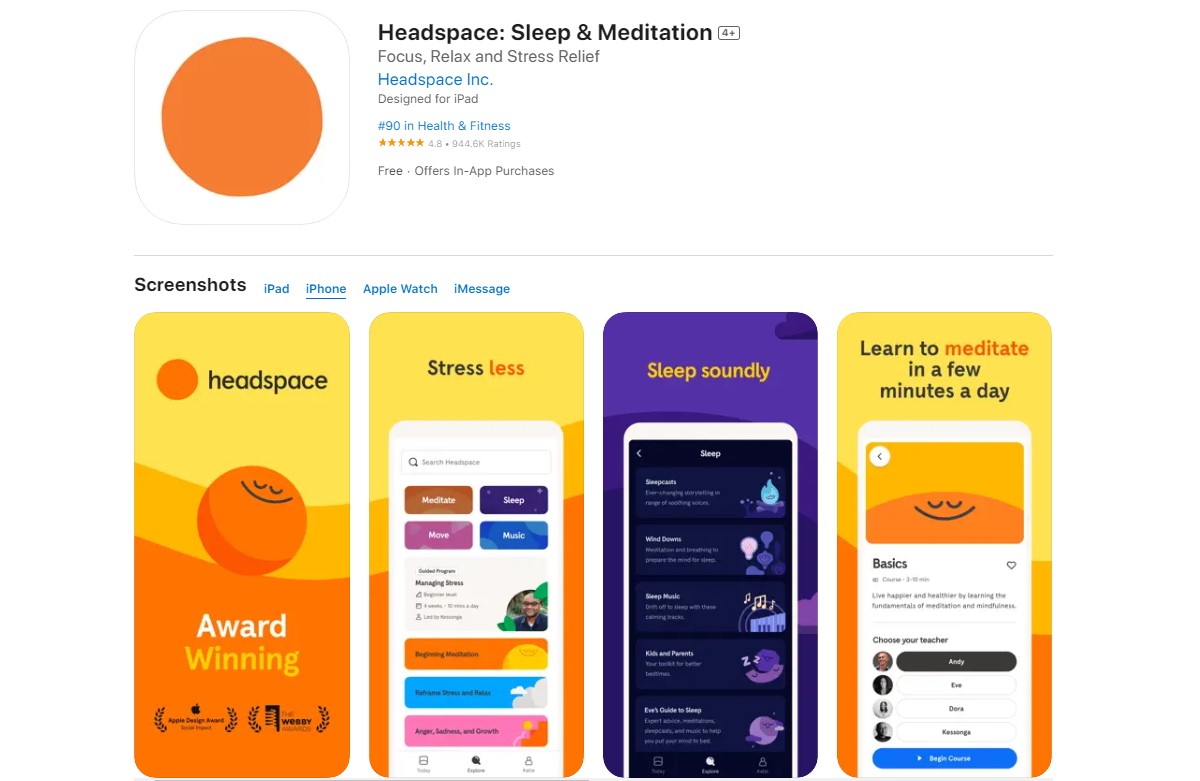
Headspace stands out as a sanctuary for those seeking a moment of tranquility in their hectic lives.
It offers a vast library of guided meditations, mindfulness practices, and sleep aids, tailored to various needs and schedules.
Users appreciate the user-friendly interface and the variety of sessions available, ranging from quick stress-relievers to comprehensive meditation courses.
Whether you’re a beginner or a seasoned practitioner, Headspace provides a structured path to mindfulness, helping users cultivate a sense of calm, increase focus, and improve overall mental well-being.
The app’s commitment to making meditation accessible and engaging has made it a favorite among users seeking a reliable tool for daily mental health maintenance.
2. BetterHelp
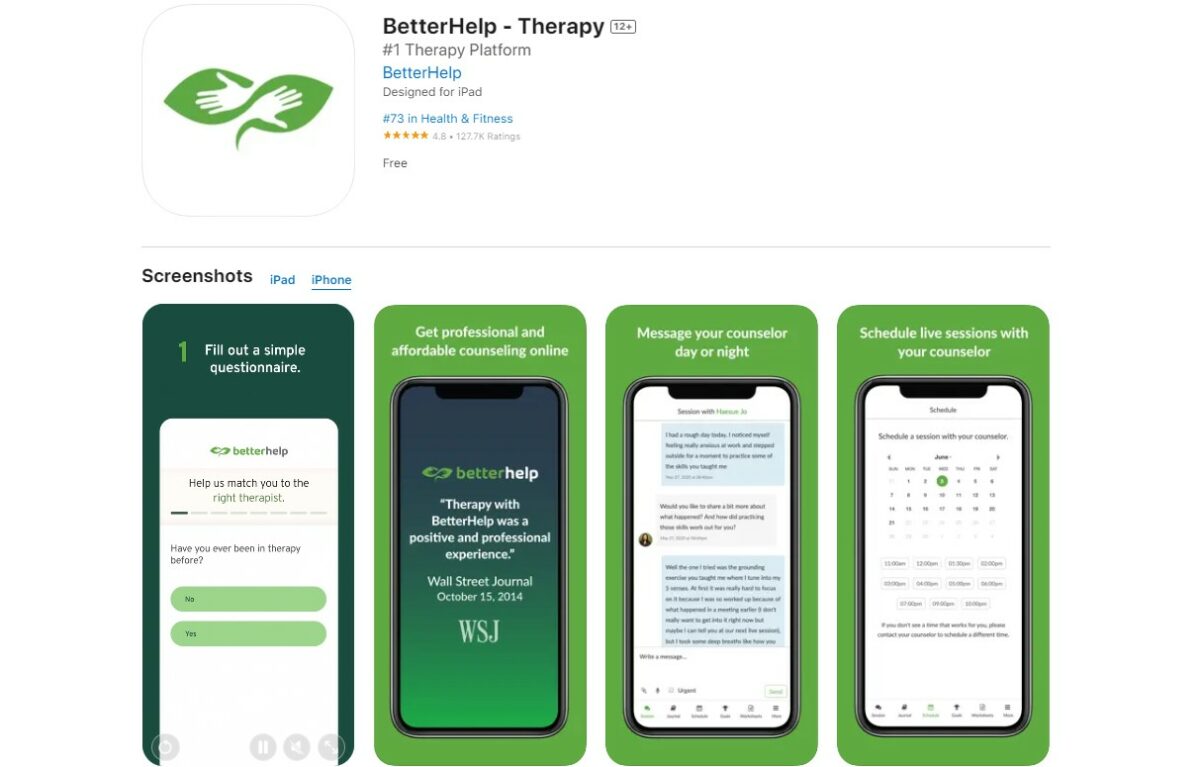
BetterHelp revolutionizes the way individuals access mental health services by connecting them with licensed therapists through a digital platform.
This app offers a flexible and convenient way to receive counseling, accommodating various communication preferences, including messaging, phone calls, and video sessions.
Users can discuss a range of issues, from anxiety and depression to relationship challenges, all from the privacy of their homes.
BetterHelp’s vast network of therapists ensures that users can find a match that suits their specific needs and preferences.
The app’s commitment to confidentiality and professional support makes it a trusted choice for those seeking a more accessible form of therapy.
3. Calm
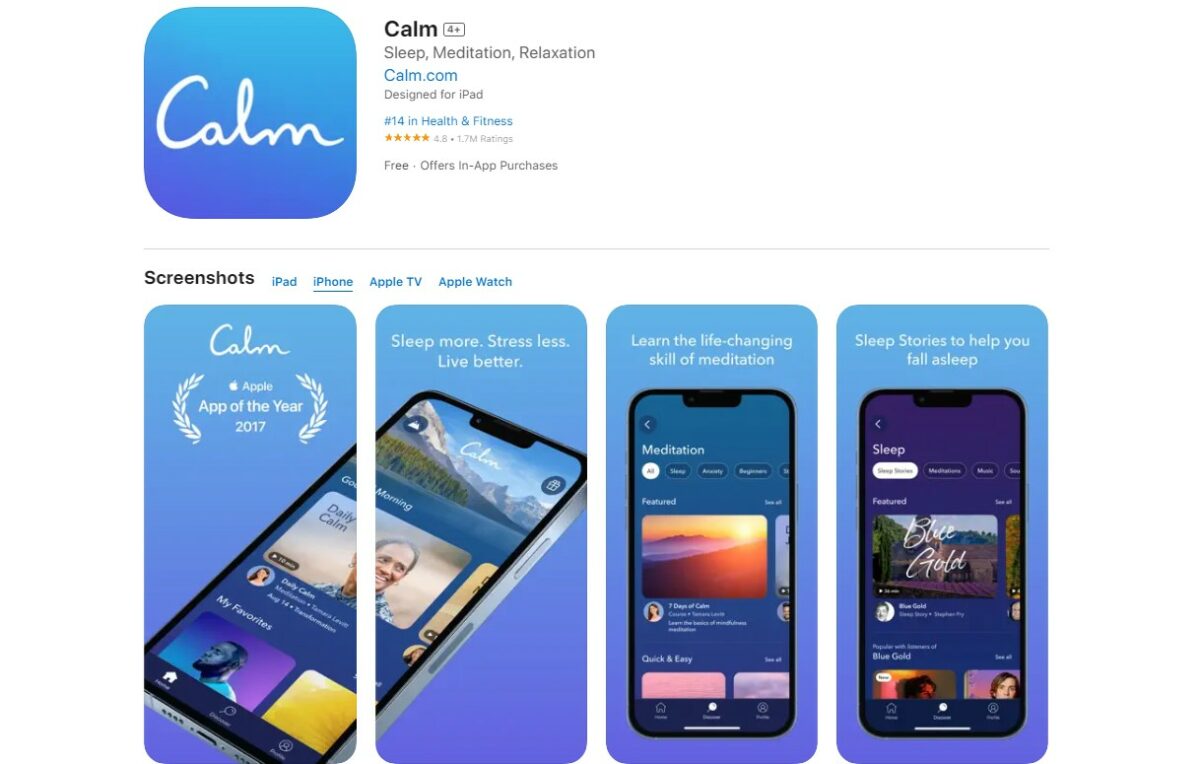
Calm provides a serene escape for those struggling with sleep and stress, offering an array of sleep stories, meditations, and music designed to soothe the mind.
The app’s sleep stories, narrated by various voices including celebrities, are particularly popular, helping users drift off to a peaceful sleep.
Calm also features guided meditations and breathing exercises to reduce anxiety and improve relaxation.
Its focus on improving sleep quality and reducing stress makes it a valuable tool for anyone looking to enhance their overall well-being.
With its gentle approach and user-friendly design, Calm has become a go-to app for those seeking a restful night and a more relaxed state of mind.
4. Sanvello
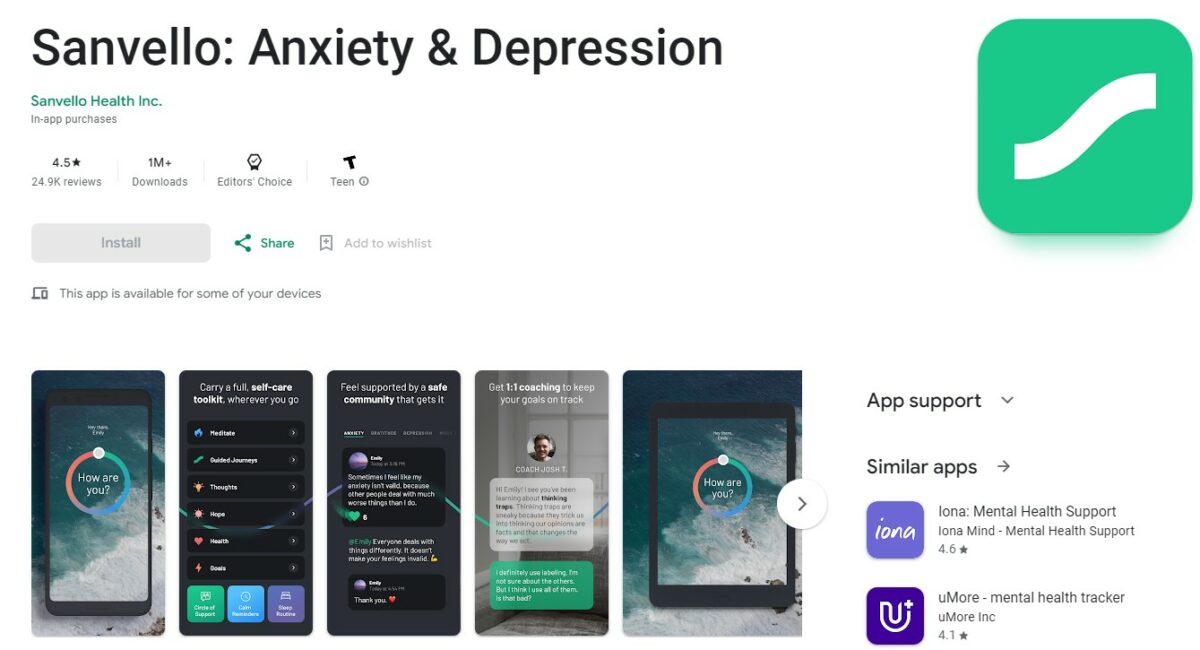
Sanvello is based on the principles of Cognitive Behavioral Therapy (CBT), offering users a structured approach to managing anxiety, depression, and stress.
The app provides a variety of tools, including mood tracking, guided journeys, and coping techniques, all designed to empower users to take control of their mental health.
Sanvello’s community feature allows users to connect with others and share experiences, creating a supportive environment.
The app’s personalized approach helps users understand their thought patterns and develop healthier coping mechanisms.
With its evidence-based strategies and supportive community, Sanvello is a comprehensive tool for those looking to improve their mental health through CBT.
5. MoodKit
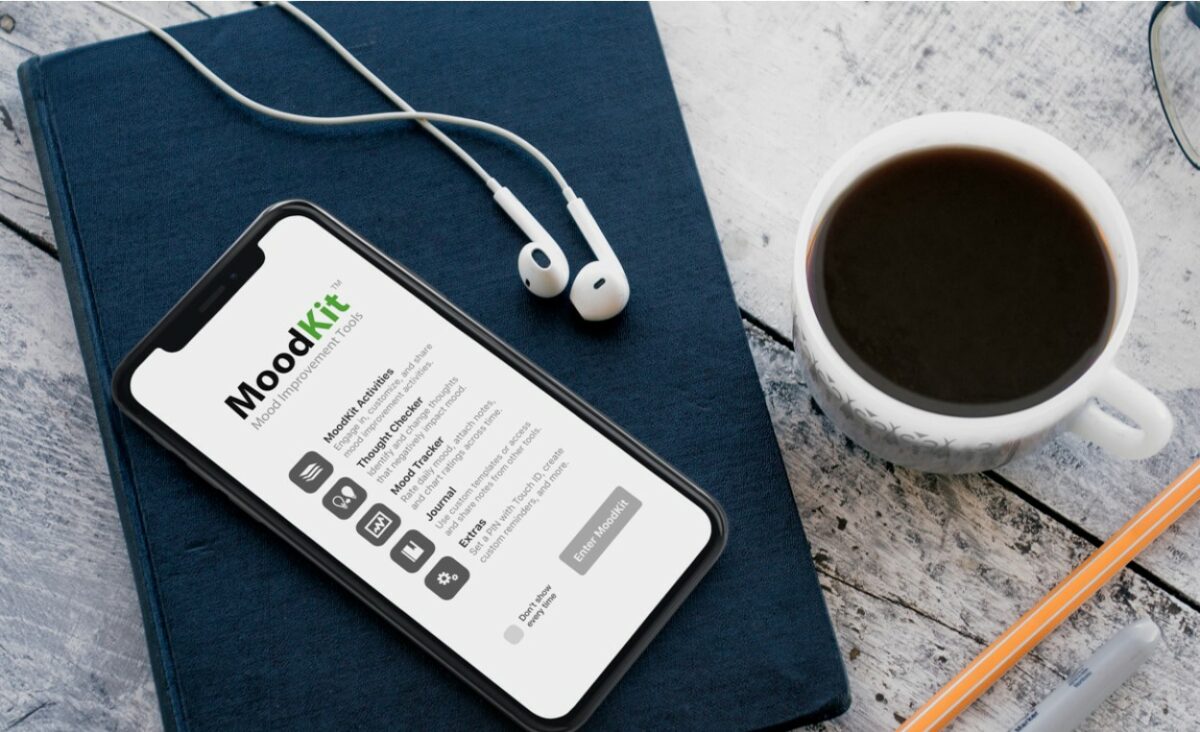
MoodKit is an affordable option for those looking to enhance their mood and overall mental well-being.
Developed by clinical psychologists, the app offers over 200 mood-improvement activities based on the principles of Cognitive Behavioral Therapy (CBT).
Users can track their mood, journal their thoughts, and engage in exercises designed to challenge negative thinking and promote positive behavior changes.
MoodKit’s straightforward design and comprehensive toolkit make it an appealing choice for individuals seeking practical strategies to improve their daily mental health.
The app’s one-time fee provides lifelong access to a range of resources, making it a cost-effective option for users on a budget.
6. Talkspace
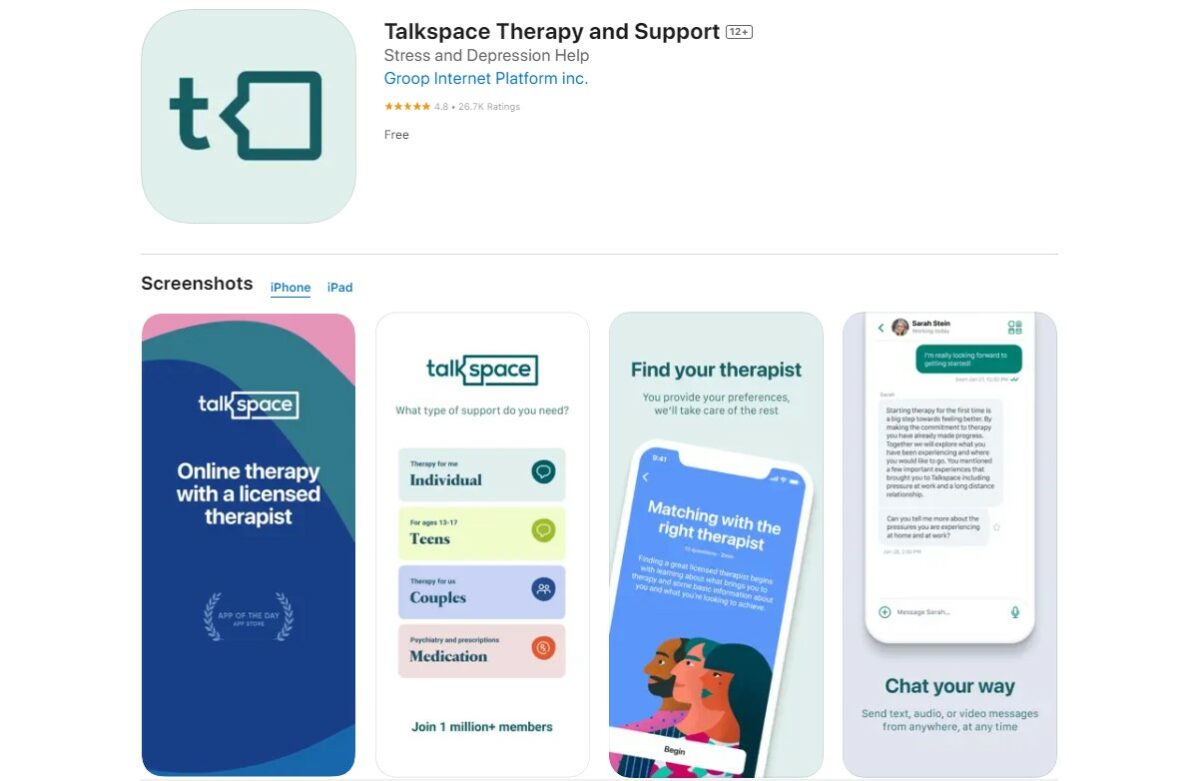
Talkspace connects users with licensed therapists for convenient and confidential online therapy sessions.
The app offers a flexible platform for individuals to discuss a wide range of issues, including anxiety, depression, and relationship challenges.
Users can communicate with their therapists through messaging, audio, or video, making therapy accessible even for those with busy schedules.
Talkspace’s commitment to providing professional and personalized care has made it a popular choice for those seeking therapy in a more modern and convenient format.
With its user-friendly interface and emphasis on privacy, Talkspace is redefining the therapy experience for the digital age.
7. I Am Sober

I Am Sober is a motivational companion for those on the journey to overcome addiction.
The app provides a supportive platform for users to track their sobriety, set goals, and celebrate milestones.
With features like daily pledges, progress tracking, and motivational quotes, I Am Sober helps users stay committed to their recovery.
The app’s community aspect allows individuals to connect with others who share similar experiences, fostering a sense of solidarity and encouragement.
I Am Sober’s user-friendly design and positive reinforcement make it a valuable tool for anyone looking to maintain sobriety and build a healthier lifestyle.
8. Happify
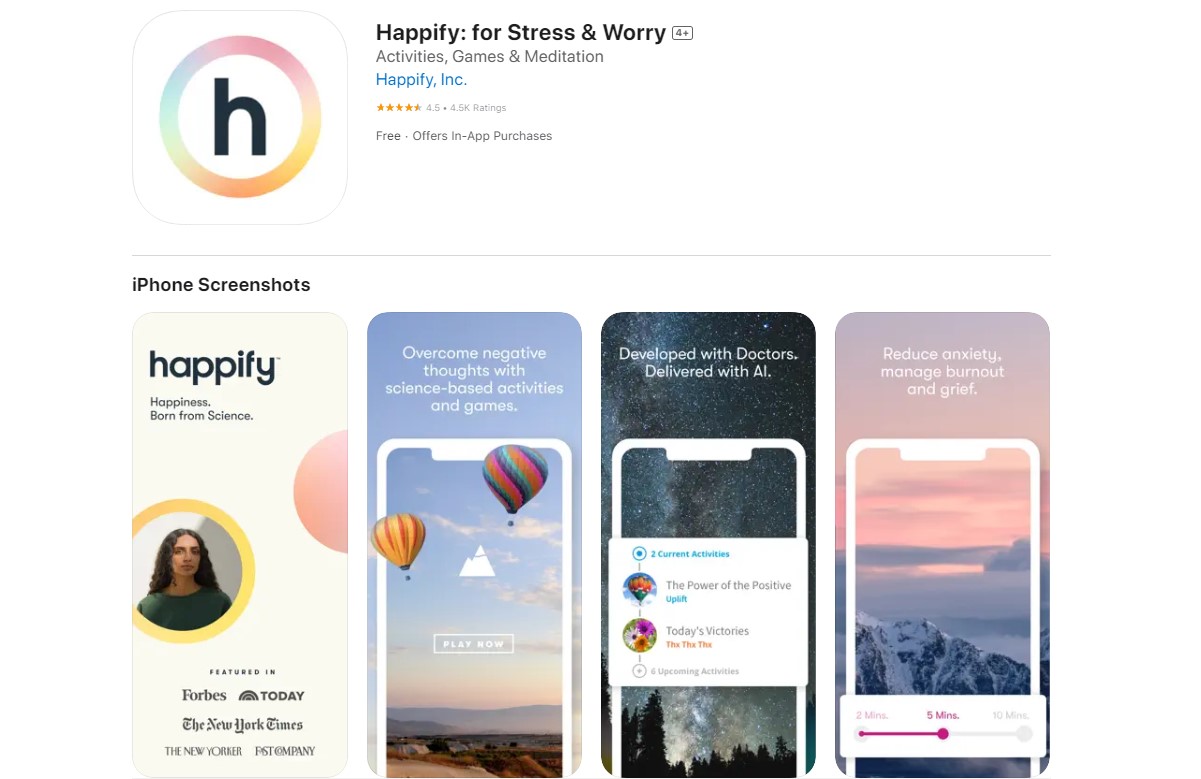
Happify is designed to help users combat stress and negative thoughts through science-based activities and games.
The app employs strategies from positive psychology, mindfulness, and CBT to improve emotional well-being.
Users can engage in various tracks tailored to their personal goals, whether it’s reducing worry, boosting self-confidence, or improving relationships.
Happify’s interactive approach makes the process of enhancing mental health both effective and enjoyable.
With its engaging content and evidence-based techniques, Happify is a dynamic tool for those looking to reduce stress and cultivate a more positive outlook on life.
9. Worry Watch
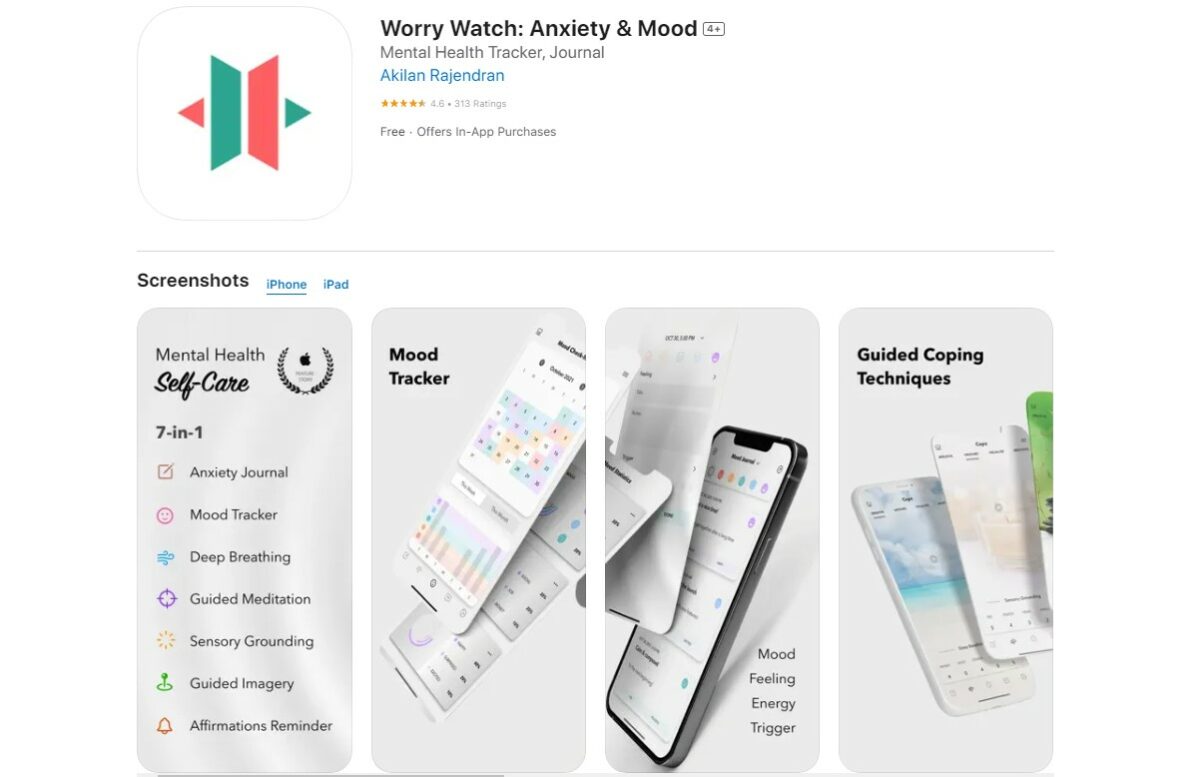
Worry Watch is an app specifically designed to help users track and manage their anxiety.
It allows individuals to record their worries, reflect on the outcomes, and identify patterns in their thinking.
By providing a space for users to journal their anxious thoughts, Worry Watch helps them challenge and overcome excessive worry.
The app’s analytical tools enable users to gain insights into their anxiety triggers and develop healthier coping strategies.
Worry Watch’s focus on self-reflection and personal growth makes it a powerful tool for anyone looking to understand and reduce their anxiety.
10. NOCD
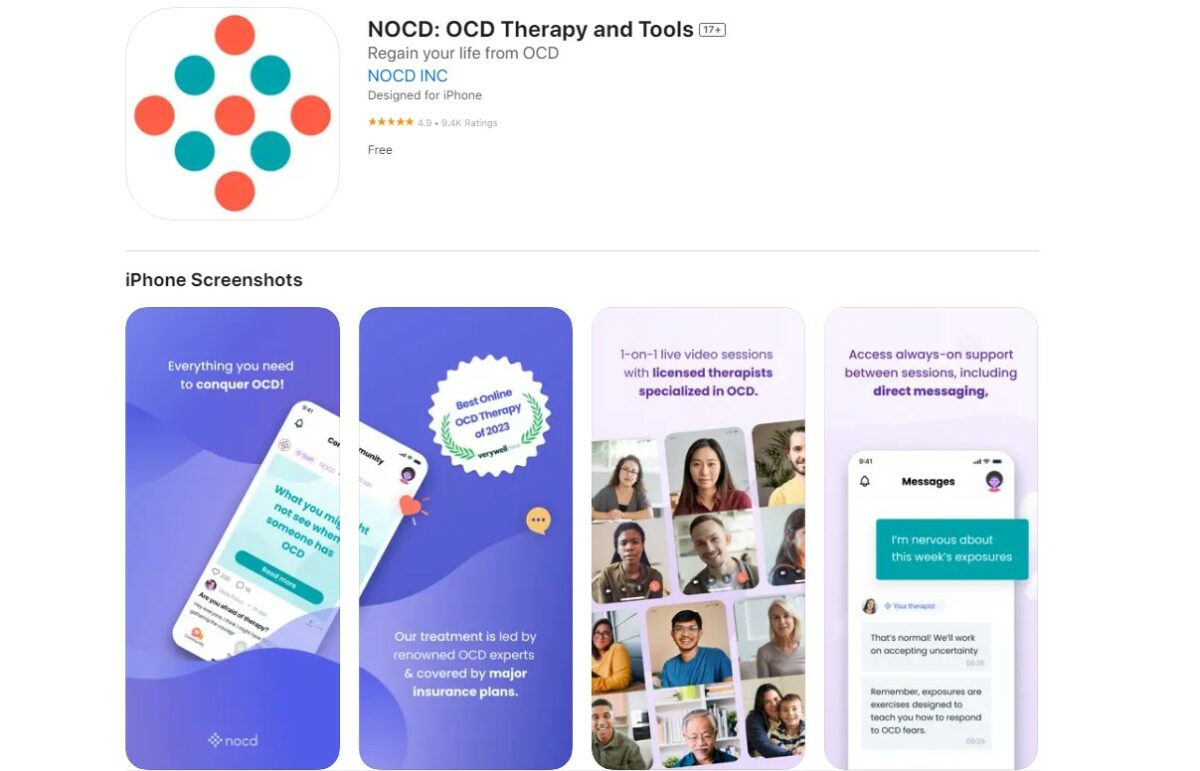
NOCD offers specialized support for individuals with Obsessive-Compulsive Disorder (OCD).
The app provides access to live video therapy sessions with OCD specialists, as well as a supportive community of users.
NOCD’s therapy approach is based on Exposure and Response Prevention (ERP), a proven method for treating OCD.
Users can also engage in self-help tools and exercises between therapy sessions to reinforce their progress.
NOCD’s commitment to providing effective and accessible treatment for OCD has made it a valuable resource for those seeking to manage their symptoms and regain control over their lives.
11. Quit That!
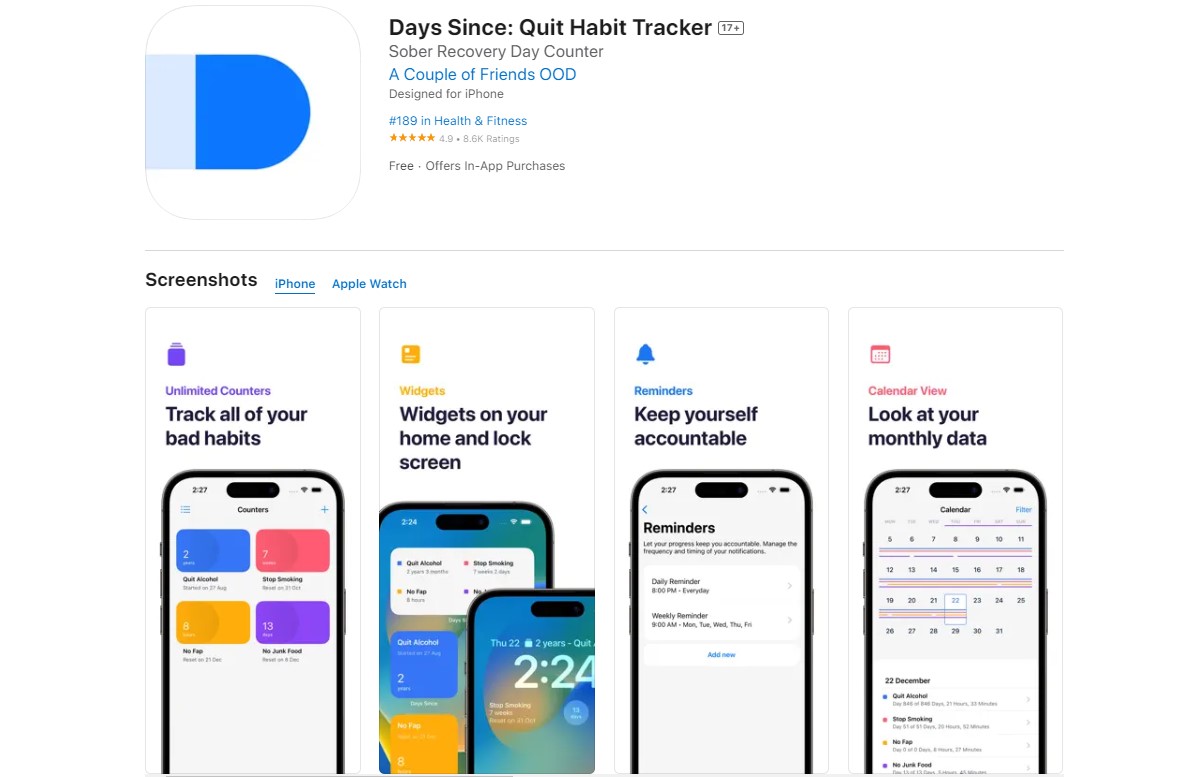
Quit That! is a straightforward app designed to help users break free from harmful habits, whether it’s smoking, drinking, or any other addictive behavior.
The app allows individuals to track the time since they quit, as well as the money and time saved as a result of their efforts.
Quit That!’s simple interface and motivational statistics provide users with a clear picture of their progress and the benefits of staying committed to their goals.
With its focus on positive reinforcement and easy tracking, Quit That! is an encouraging tool for anyone looking to quit a habit and improve their health.
12. MindShift CBT
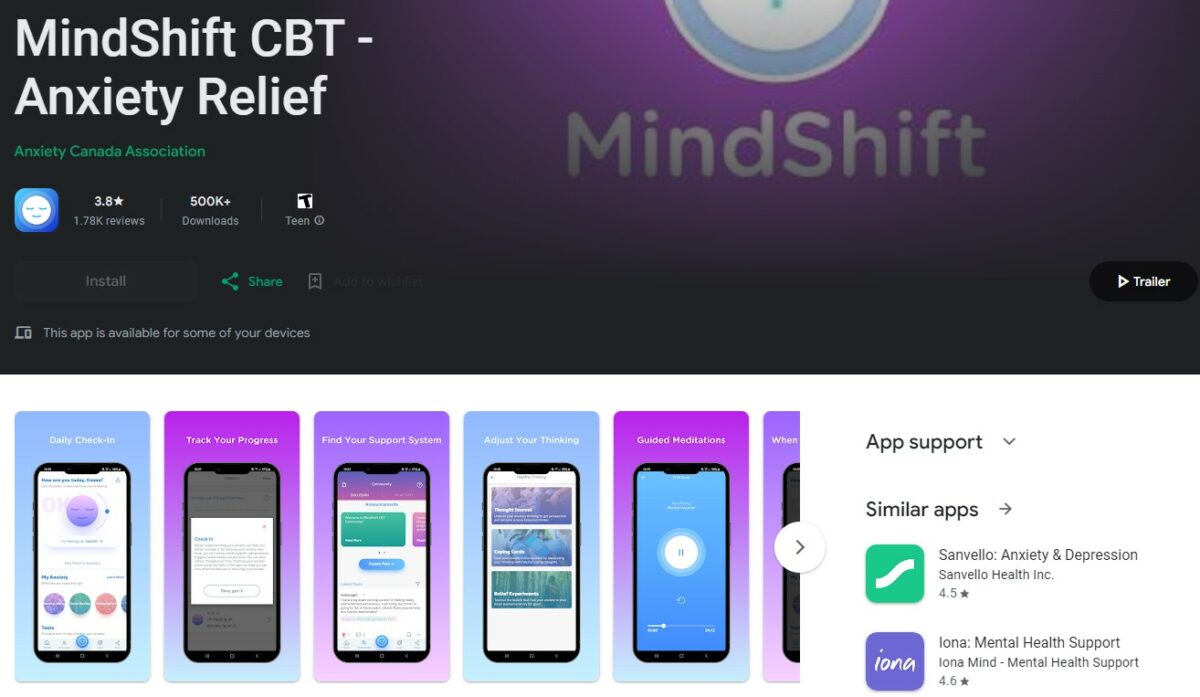
MindShift CBT is tailored specifically for adolescents and young adults dealing with anxiety.
The app uses Cognitive Behavioral Therapy (CBT) techniques to help users understand and manage their anxiety.
MindShift CBT provides a range of tools, including thought journals, coping cards, and relaxation exercises, all designed to empower users to take charge of their anxiety.
The app’s youth-friendly design and focus on education make it an appealing choice for younger individuals looking to learn about and overcome anxiety.
With its comprehensive approach and supportive features, MindShift CBT is a valuable ally for youth navigating the challenges of anxiety.
13. Breathe2Relax
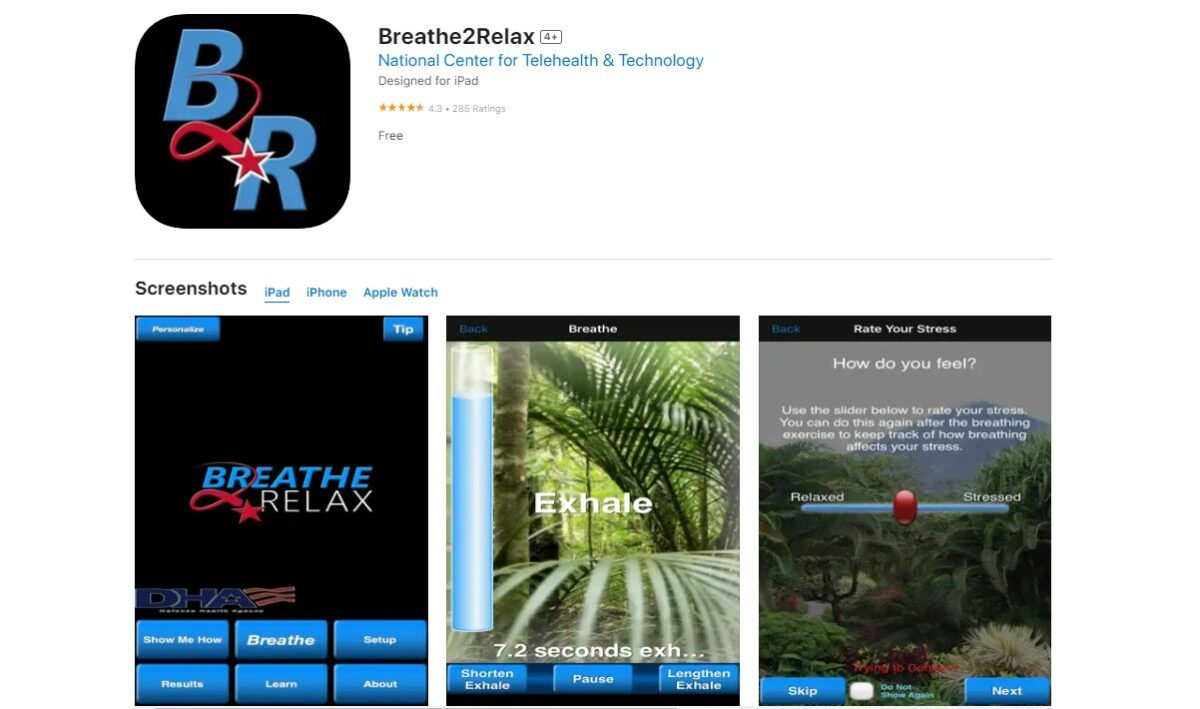
Breathe2Relax is a stress management tool that teaches users diaphragmatic breathing, a technique proven to reduce stress and improve mood.
The app guides individuals through breathing exercises, helping them practice and master the skill of deep, controlled breathing.
Breathe2Relax’s user-friendly interface and customizable sessions make it easy for users to incorporate relaxation into their daily routine.
The app’s focus on breathing as a core component of stress reduction has made it a popular choice for those seeking a simple yet effective way to manage stress and enhance overall well-being.
14. Recovery Record
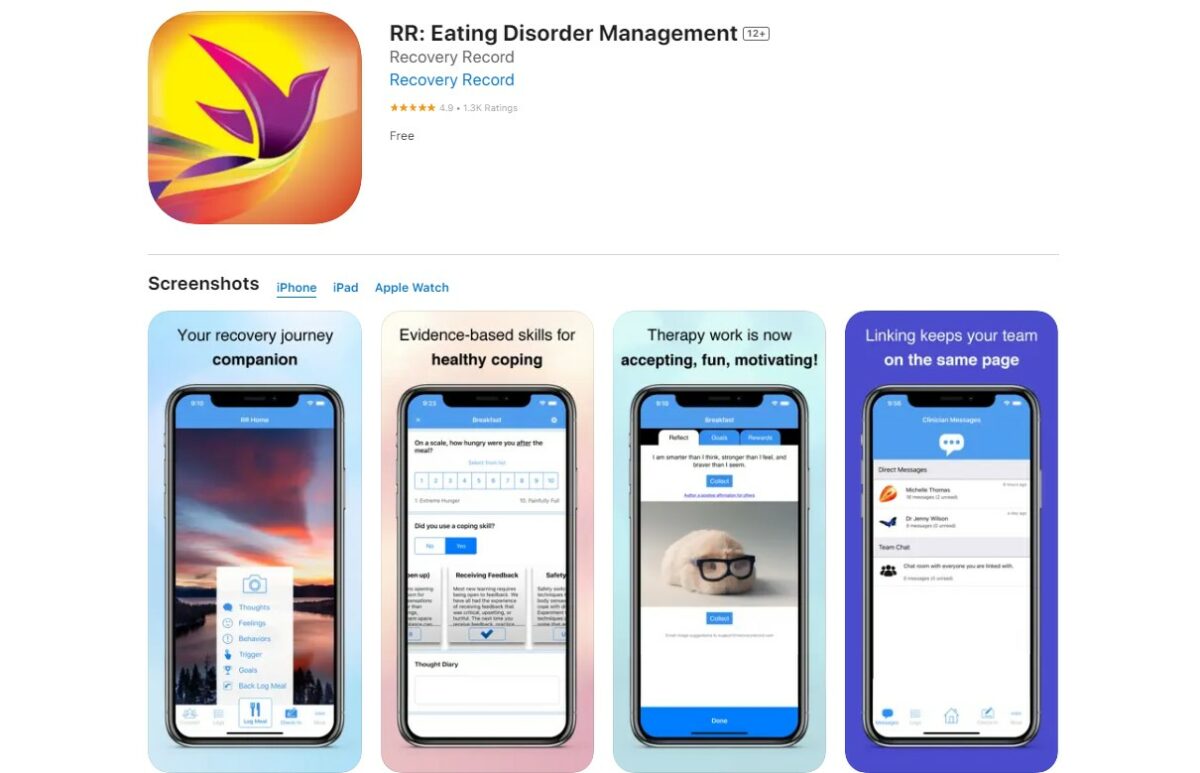
Recovery Record is designed for individuals recovering from eating disorders.
The app offers a comprehensive platform for tracking meals, emotions, and coping strategies.
Users can also connect with their treatment team, providing clinicians with real-time insights into their progress.
Recovery Record’s personalized approach and supportive features encourage users to stay engaged in their recovery journey.
The app’s emphasis on collaboration and self-monitoring makes it a valuable tool for anyone looking to overcome an eating disorder and maintain a healthy relationship with food.
15. Reflectly
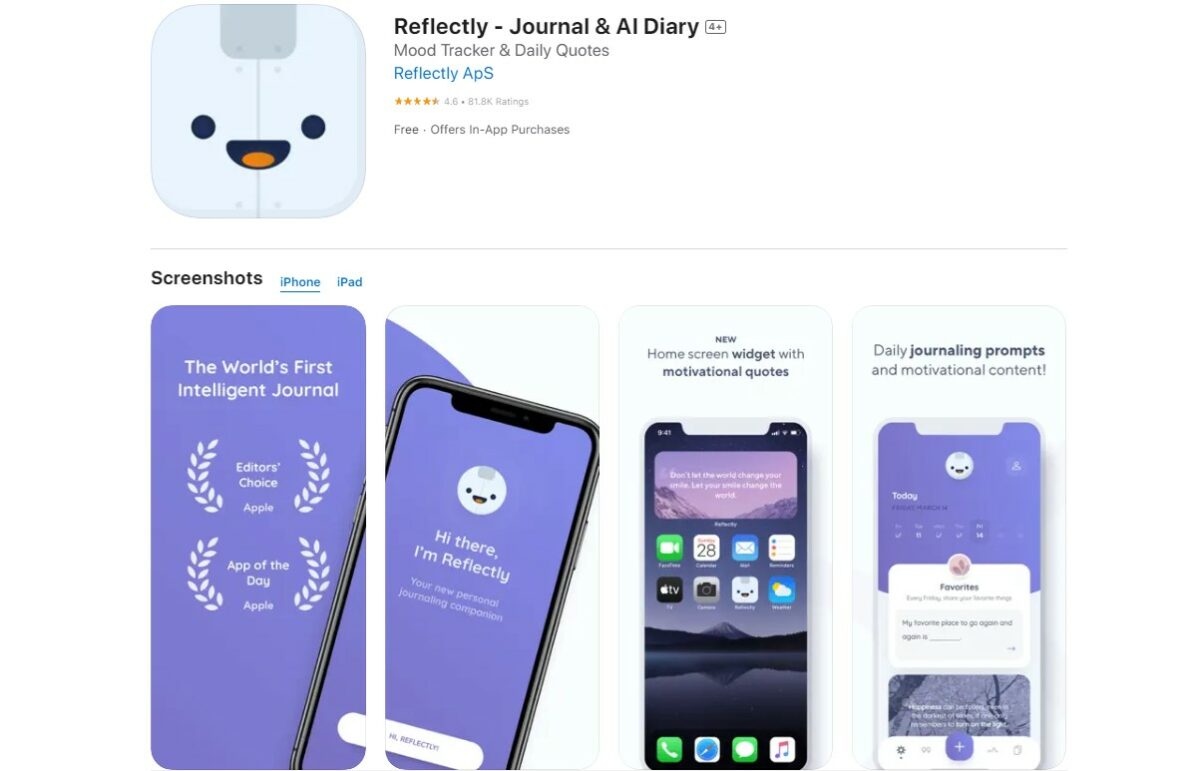
Reflectly is a personal journaling app that uses artificial intelligence to help users track their mood and foster positive thinking.
The app prompts individuals to reflect on their day, identify emotions, and practice gratitude.
Reflectly’s engaging interface and personalized feedback make the process of journaling both insightful and enjoyable.
Users appreciate the app’s ability to help them understand their emotional patterns and cultivate mindfulness.
With its focus on self-reflection and personal growth, Reflectly is a popular choice for those looking to explore the benefits of journaling for mental health.
16. 7 Cups
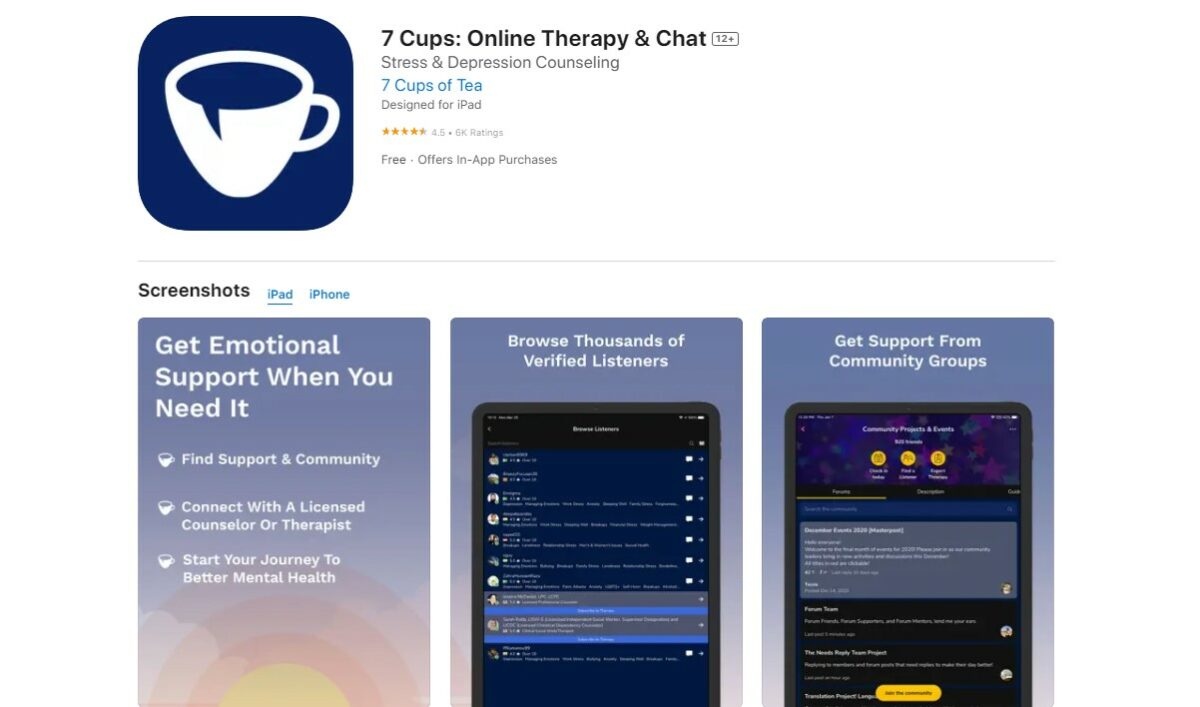
7 Cups provides a platform for anonymous emotional support and counseling from trained volunteer listeners.
Users can engage in one-on-one chat sessions to discuss their feelings, concerns, or any topic they need to talk about.
7 Cups also offers access to licensed therapists for more in-depth support.
The app’s community forums allow users to connect with others and share experiences.
7 Cups’ emphasis on accessibility and community makes it a unique resource for individuals seeking a sense of connection and understanding.
17. MyPossibleSelf
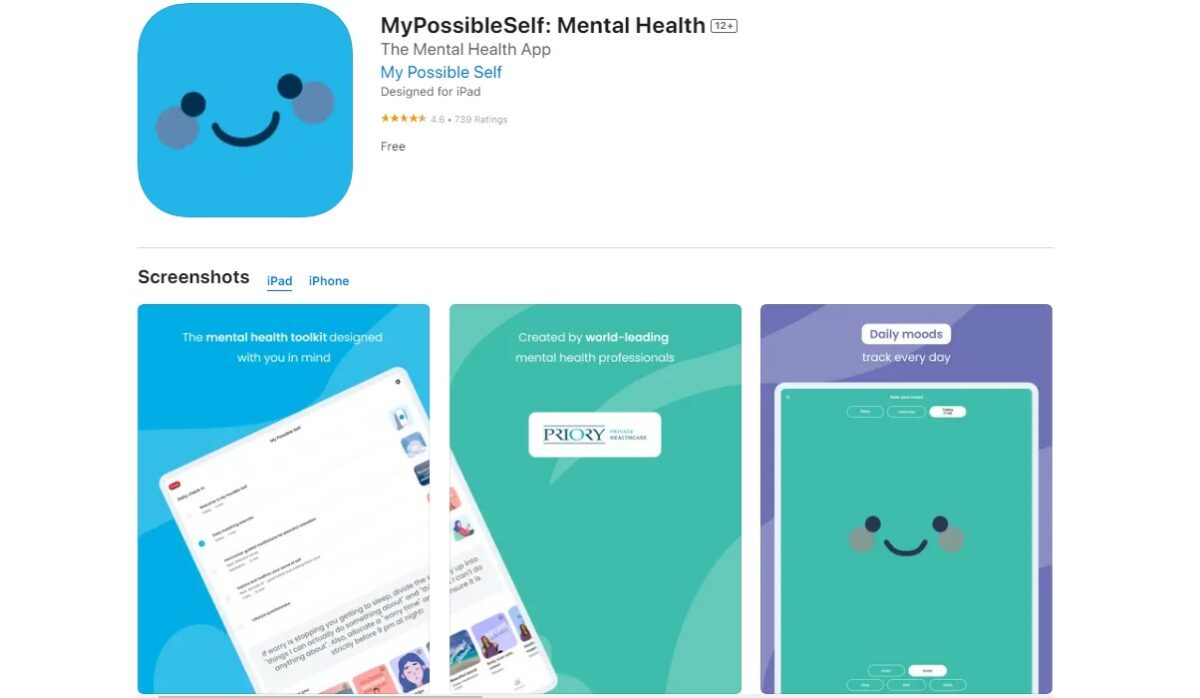
MyPossibleSelf is an app focused on improving mental health and personal development.
It offers modules based on psychological techniques to help users manage stress, improve relationships, and boost happiness.
The app encourages users to set goals, track progress, and reflect on their experiences.
MyPossibleSelf’s interactive content and practical exercises provide users with the tools they need to make positive changes in their lives.
With its comprehensive approach to personal growth, MyPossibleSelf is an empowering tool for anyone looking to enhance their mental well-being and achieve their full potential.
FAQs
What should I consider when choosing a mental health app?
When selecting a mental health app, consider factors such as the specific mental health issue you want to address, the app’s credibility and the qualifications of its creators, user reviews, privacy policies, and whether it uses evidence-based techniques.
It’s also important to think about the app’s cost, ease of use, and whether it offers a style of interaction (text, audio, video) that suits your preferences.
How do mental health apps complement traditional therapy?
Mental health apps can complement traditional therapy by providing additional tools and resources for users to manage their mental health between sessions.
They offer convenience and accessibility for tracking mood, practicing relaxation techniques, or continuing to develop coping strategies.
However, they are not a replacement for professional treatment and should be used as part of a comprehensive care plan.
Can mental health apps be used for all types of mental health issues?
While mental health apps offer support for a wide range of issues, their suitability varies depending on the severity and type of mental health condition.
Some apps are designed for specific issues like anxiety, depression, or stress management, while others might focus on habit change, sleep improvement, or mindfulness.
It’s crucial to choose an app that aligns with your specific needs and to consult with a healthcare professional for severe or complex mental health conditions.
Are mental health apps effective for long-term mental health management?
The effectiveness of mental health apps for long-term management depends on the individual’s engagement, the app’s quality, and whether it incorporates evidence-based practices.
Many users find apps helpful for maintaining habits and strategies learned in therapy, providing ongoing support, and managing daily stressors.
However, long-term effectiveness also requires regular use and sometimes integration with traditional therapy or medical treatment.
It’s important to regularly evaluate your progress and adjust your mental health strategy as needed.
Conclusion
Embarking on a journey towards better mental health is now more accessible with the best apps for mental health, each offering unique tools and strategies to support and enhance well-being.
From mindfulness and sleep improvement to managing anxiety, addiction recovery, and more, these apps provide a range of options to suit different needs and preferences.
They stand as testaments to how technology can be a powerful ally in our quest for a happier, healthier life.
As mental health continues to be a crucial aspect of overall health, these apps empower individuals to take proactive steps towards nurturing their minds, offering hope and practical solutions in the palm of their hands.





